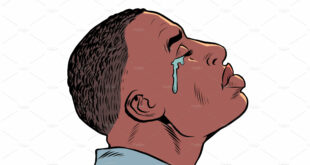Toilet Law
The Right Stuff
December 9, 2015
Do not doubt that we are in a cultural cold war on the verge of becoming very very hot. Our opponents use many conceptual weapons on whites mortally terrified of the word “racist.” One of these weapons is the idea of “white privilege” whose origins lie in 1980’s feminist Marxism. “White privilege” is the cause of any sort of outcome inequality between whites and people of color. Akin to “institutional racism,” it is non-tangible original sin. Leftists are constantly producing different sermons on white privilege trying to find new and increasingly boring ways to finally convince Joe 6-pack that despite barely scratching out a living, going paycheck to paycheck, he can never get rid of the white privilege thetans clinging to his soul.
In this context we find another anti-white screed from one of the various high priestess catladies of progressivism, Eula Biss. Biss turns the signaling up to 11, and namedrops luminaries such as Nietschze, noted communist negro agitator Ta Nehisi Coates, and the execrable (((Noel Ignatiev))), known for actively advocating for the extinction of whites and for whom no word processor could produce enough parentheses. Biss submitted a sermon to the (((New York Times))) trying to accurately describe what being white means. In her opinion, whiteness, or being white, has nothing to do with genetics or ancestry, and has everything to do with being “unaware debtors.” In this case, whites have a spiritual and moral debt because of slavery and everything since, and we are blissfully ignorant of the debt.
Throughout the sermon, Biss signals her moral superiority by confessing her sins and explaining her penance. As a college student, she was threatened with arrest for tagging by plastering posters all over her university, but was not arrested. She contrasts this with the instance of a Cincinnati negro who was killed by a trigger happy police officer while trying to flee a legal traffic stop. (The officer has since been formally charged with murder.) She cites Saint Sandra Bland who questioned the officer who put her on the ground after she resisted lawful arrest, and later died. These recitations of religious canon prove that the law is different for blacks and whites, obviously. But her penance does not end there. Her son is brainwashed by her to hate early American settlers and admire the savage indian tribes. In what can only be described as Scientology-esque brainwashing and child abuse, she has rendered her pre-pubescent son into a first grade SWPL who cries when reminded that his city is founded on what was once indian lands centuries ago.
Nonetheless, my overview of slavery and Jim Crow left my son worried about what it meant to be white, what legacy he had inherited. ‘‘I don’t want to be on this team,’’ he said, with his head in his hands. ‘‘You might be stuck on this team,’’ I told him, ‘‘but you don’t have to play by its rules.’’
My son’s first week in kindergarten was devoted entirely to learning rules. At his school, obedience is rewarded with fake money that can be used, at the end of the week, to buy worthless toys that break immediately. Welcome to capitalism, I thought when I learned of this system, which produced, that week, a yo-yo that remained stuck at the bottom of its string. The principal asked all the parents to submit a signed form acknowledging that they had discussed the Code of Conduct with their children, but I didn’t sign the form. Instead, my son and I discussed the civil rights movement, and I reminded him that not all rules are good rules and that unjust rules must be broken. This was, I now see, a somewhat unhinged response to the first week of kindergarten. I know that schools need rules, and I am a teacher who makes rules, but I still want my son to know the difference between compliance and complicity.
Biss also explains how white isn’t really a race:
Whiteness is not a kinship or a culture. White people are no more closely related to one another, genetically, than we are to black people. American definitions of race allow for a white woman to give birth to black children, which should serve as a reminder that white people are not a family. What binds us is that we share a system of social advantages that can be traced back to the advent of slavery in the colonies that became the United States. ‘‘There is, in fact, no white community,’’ as Baldwin writes.
To that I would only reply with this depiction of the studies of noted genetecist Luigi Luca Cavalli-Sforza:
Biss then goes on to extol the work of saint (((Noel Ignatiev))), and his various works in the anti-white religion. She studied at his feet, absorbing his every word. Everything you need to know about Noel Ignatiev can best be summarized in this one quote:
“The key to solving the social problems of our age is to abolish the white race.”
It cannot be understated how appropriate that a jew would inspire the notion that white privilege is a debt. Goyim, you’re behind on your payments. Time for an acceleration clause. Oh and don’t forget, there is no payoff. You owe this forever.
Biss concludes that not even being a “guilty white” is truly enough. She explains her own psychosis, the horrible dread of having agency and social success when so many high time preference negroes are imprisoned because of white. She concludes that being a guilty white may not be any better than being an unaware debtor, but enlightens us that a spiritual negro figure said guilty whites are needed for the political process. With the blessing of the holy negro, go forth and be forever sorry for who you are.
Much of our economic machinery works on debt. Debt comes in many forms, and economists talk about “good debt” such as fixed rate home mortgages, and “bad debt” such as credit card debt and payday loans. Fiat currency critics even refer to our currency as “debt” (though whether it is good or bad is a discussion for another day.) When someone fails to pay their debt they are in default. Sometimes, though, intentionally foregoing payment on a debt is a logical economic decision. This is referred to as “strategic default.” In real estate, for example, a borrower might owe more on a mortgage than a house is worth. This is not uncommon, especially during the housing boom and bust that occurred in the last decade. Foreclosure can take years to process in many jurisdictions, because the process is entirely judicial with overwhelming dockets for singular judges to process. Why make payments on a house you cannot afford, when you can pocket those payments, improve your financial position, and live rent free while the foreclosure process drags on for years? “White Privilege” is a debt we cannot afford. We’ve been paying on it for decades in the form of hiring quotas, affirmative action, government handouts, OJ jury verdicts, destructive riots and protests, disparate crime rates for browns and blacks, subsidized medicine and housing, and yet the interest keeps compounding. The (((lenders))) keep raising the monthly payments, demanding more and more resources be diverted to the debt. Let’s stop paying this debt.
I would venture for “white privilege” its long past time to enter strategic default.
 Daily Stormer The Most Censored Publication in History
Daily Stormer The Most Censored Publication in History




